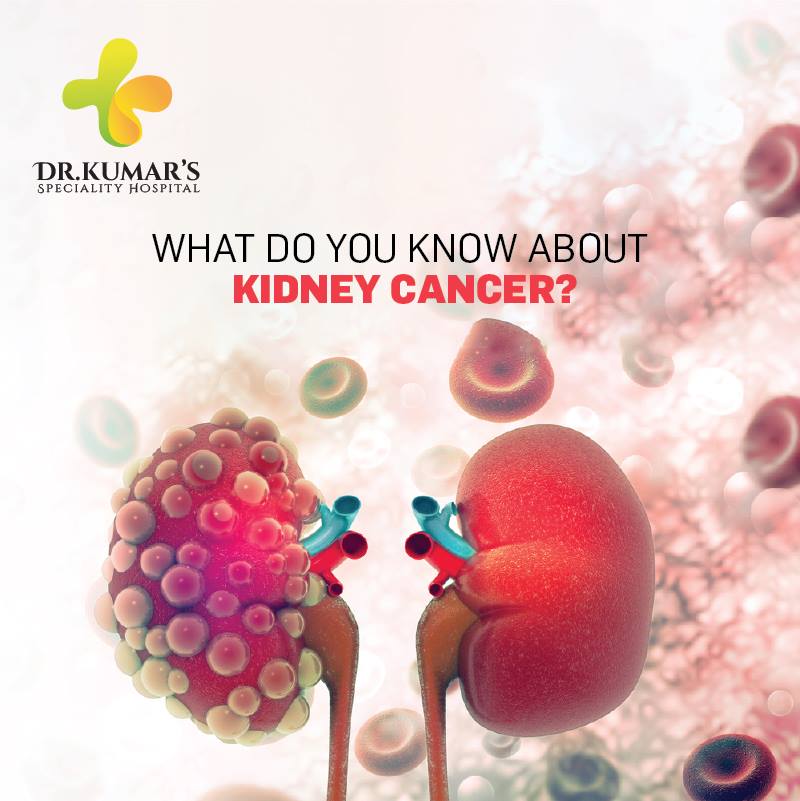
The main function of your kidney is to filter waste from the blood and eject it through the production of urine. Kidneys also help control blood pressure and maintain the optimum levels of red blood cells.
Kidney cancer is the growth of abnormal cells in the kidney tissues. The disease is also called renal carcinoma. The fast growing abnormal cells grow out of control and forms tumours that ultimately crowds out the healthy cells.
This is one of the most common cancer that affects men and women.
Renal Cell Carcinoma
There are many types of kidney cancer and Renal Cell Carcinoma or RCC is the most common of them all. It’s usually one tumour inside a single kidney, but at time there can be more than one tumour and it can affect both the kidneys.
Who is at risk?
People who are diagnosed with kidney cancer are usually between the age of 50 – 70 years. Men are likely to be affected 2 to 3 times more than women. High blood pressure, kidney disease and certain gene abnormalities raises the chance of getting kidney cancer.
Other risk factors
Smoking is another risk factor which doubles the chance of getting kidney cancer. Overweight or obesity is also a factor for the cancer to affect you. Certain OTC medicines like Aspirin and Ibuprofen can also cause the disease.
What are the symptoms of kidney cancer?
When the tumour is smaller, it may not cause any problems but when it grows bigger it can produce certain sure signs like blood in the urine, a lump which appears in the lower back or side, low back pain, chronic fatigue, weight loss without reason and continuous fever.
How is kidney cancer diagnosed?
Your doctor if he suspects kidney cancer, then a urinalysis will be suggested. The urinalysis will test the urine sample for cancer cells. A blood test will then be conducted to test the functioning of the kidneys. A complete blood count will make sure that there is the right amount white blood cells, red blood cells and platelets. Those who have kidney cancer will more likely be anaemic due to lack of RBCs.
The physician will also ask for certain imaging tests like ultrasound, CT scans, MRI scan and PET which is Positron Emission Tomography which gives 3-D colour images.
Biopsy
Biopsy for kidney cancer is done only in rare cases. If at all the doctor thinks one is needed then a tiny sample of the tumour tissue is taken with a needle and biopsy is conducted or it is tested to know the type of cancer and its stage.
Grades in kidney cancer
Grading is done once kidney cancer is confirmed from the test results. The grading gives the doctor a picture about the growth of the cancer cells. Kidney cancer can be grade 1, 2 or 3 grade. Grade 3 cells look very different from normal cells and tend to grow faster.
Staging
Staging is a test to know how far the kidney cancer has spread. It can be stage I, II, III or IV. The stage I cancer is limited to the kidney whereas state IV would have spread to other parts of the body.
Treatment for kidney cancer
Surgery is the best option to remove the tumour in the kidney. In case the patient cannot have surgery then the doctor may use radio waves or cold gases to heat or freeze the tumour and destroy it. This kills the cancer cells but does not harm the kidneys.
Other treatments include chemotherapy using medications, injection or IV, then there is targeted therapy which target blood vessels of the tumour alone. The specialist may also use immunotherapy and external radiation therapy to destroy the cancer.
